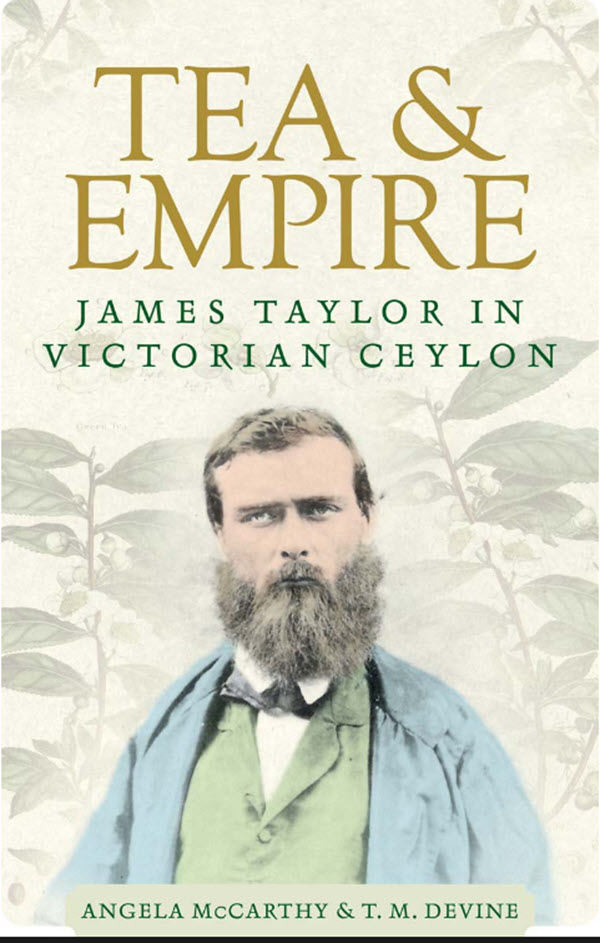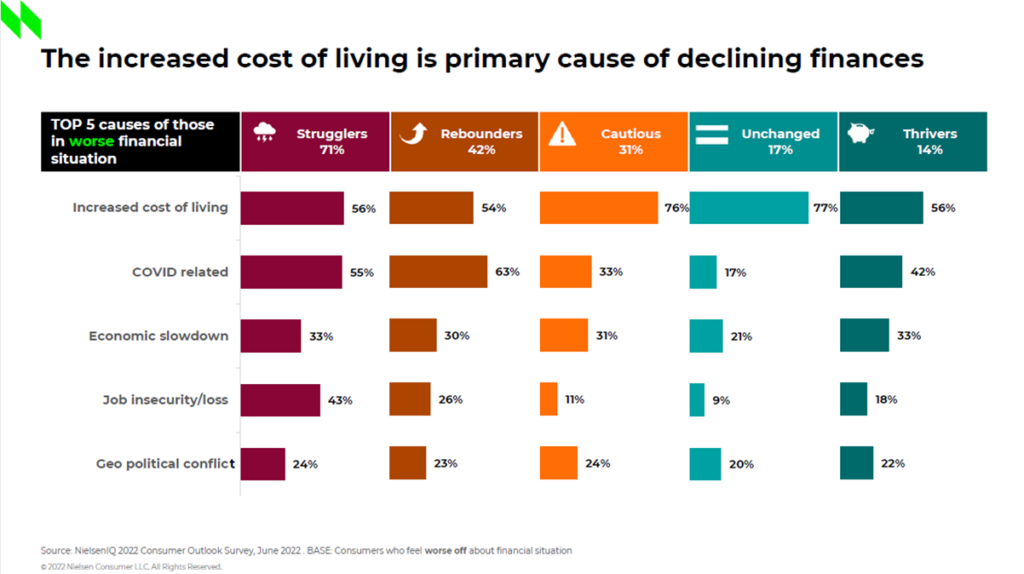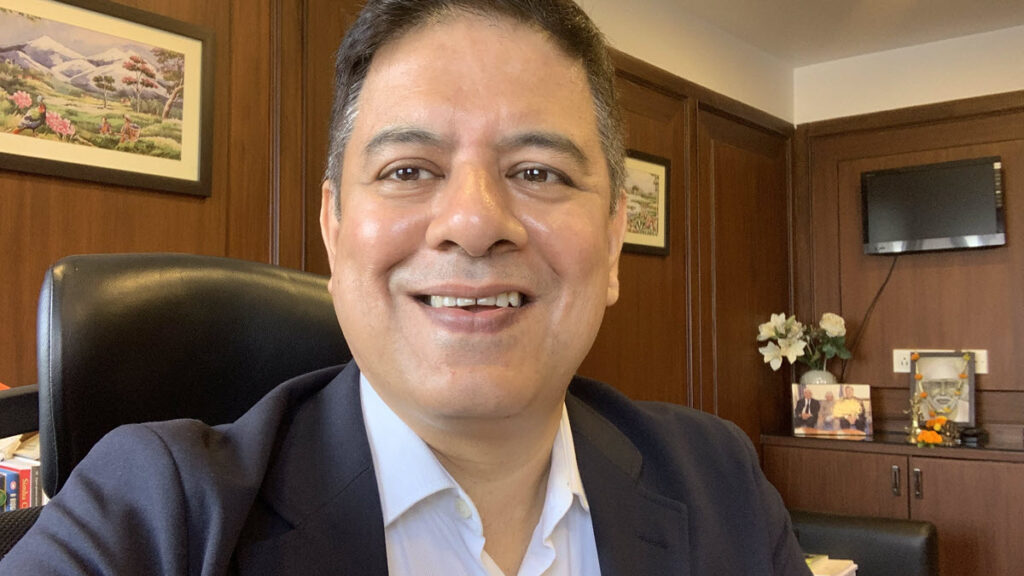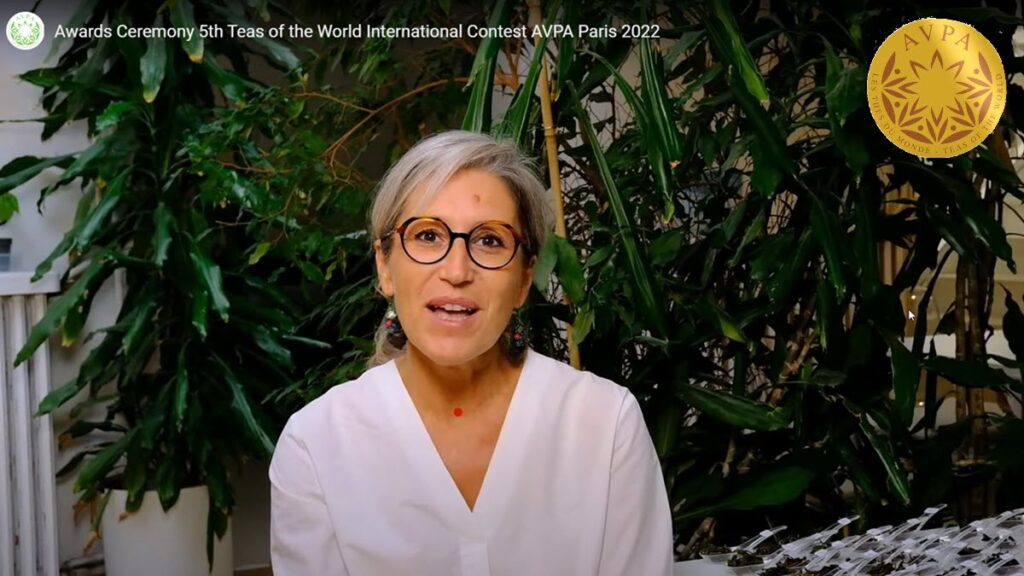“…had merely provided the first seeds and then ‘entrusted the tea experiment’ to Taylor.
It is undeniable, then, that Taylor led the way in many developments within the Ceylon tea economy…”
And that’s a quote from Tea & Empire, James Taylor in Victorian Ceylon by Angela McCarthy & T.M. Devine.
Caption: Tea & Empire Co-Author Angela McCarthy
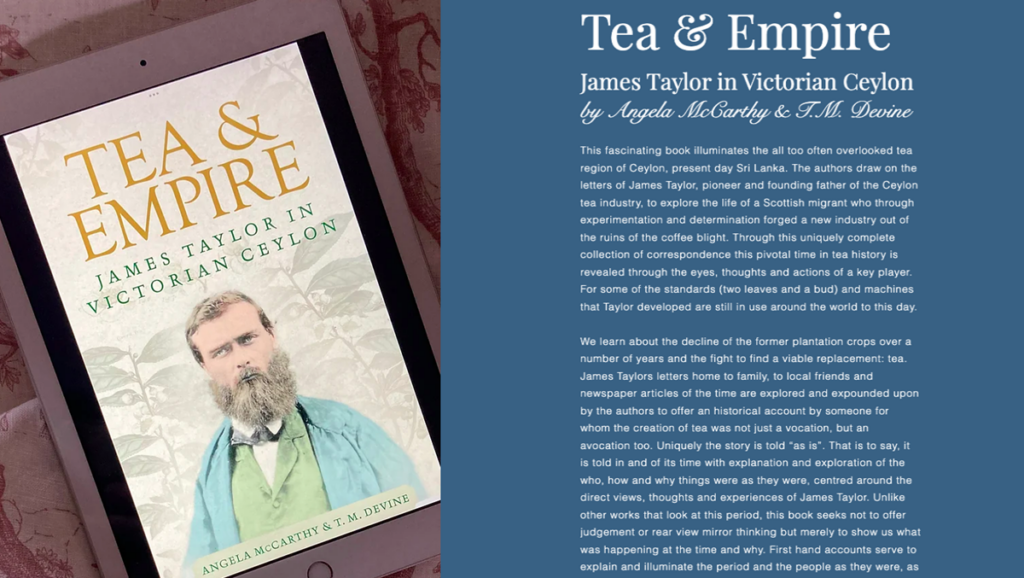
Rediscovering the Legacy of James Taylor
By Kyle Whittington | TeaBookClub
This fascinating book illuminates the all too often overlooked tea region of Ceylon, present-day Sri Lanka. The authors draw on the letters of James Taylor, pioneer and founding father of the Ceylon tea industry, to explore the life of a Scottish migrant who, through experimentation and determination, forged a new industry out of the ruins of the coffee blight. This uniquely complete collection of correspondence reveals this pivotal time in tea history through the eyes, thoughts, and actions of a key player. Some of the standards (two leaves and a bud) and machines that Taylor developed are still in use worldwide today.
We learn about the decline of the former plantation crops over several years and the fight to find a viable replacement: tea. James Taylor’s letters home to family, to local friends, and newspaper articles of the time are explored and expounded upon by the authors to offer a historical account by someone for whom the creation of tea was not just a vocation but an avocation too. Uniquely the story is told “as is.” That is to say, it is told in and of its time with explanation and exploration of the who, how, and why things were as they were, centered around the direct views, thoughts, and experiences of James Taylor. Unlike other works that look at this period, this book seeks not to offer judgment or rear-view mirror thinking but merely to show us what was happening at the time and why. First-hand accounts serve to explain and illuminate the period and the people as they were, as they lived, as they thought and spoke. This is the story and experiences of one man who lived through and shaped the birth of an industry. Not because he set out to change the world or get rich but because he was there because he worked with and in response to the situations, the place, and the time in which he found himself.
More broadly, this book also explores the legacy of Scottish education and the thought that the Scottish diaspora played such a significant role in the colonial world, particularly in Ceylon. It also looks at the legacy and, indeed, rediscovery of the legacy of James Taylor and his place in both the history of Sri Lanka and the Ceylon tea industry.
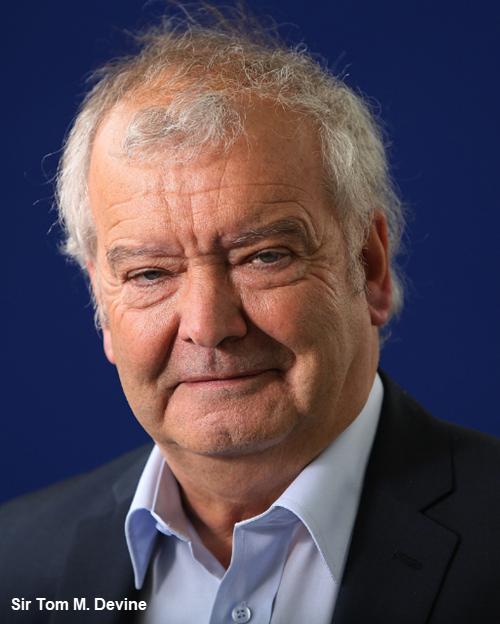
Although interesting, thought-provoking, and generally engaging to read, there are times when the reading can be a bit dry. Perhaps a case of two different writing styles. But push through those dry bits, and you’ll be riveted by the fascinating history within. TeaBookClub members agree that this is an essential book on your tea bookshelf that explores important tea history.
See: Loolcondera Tea Estate (planted by James Taylor in 1867)
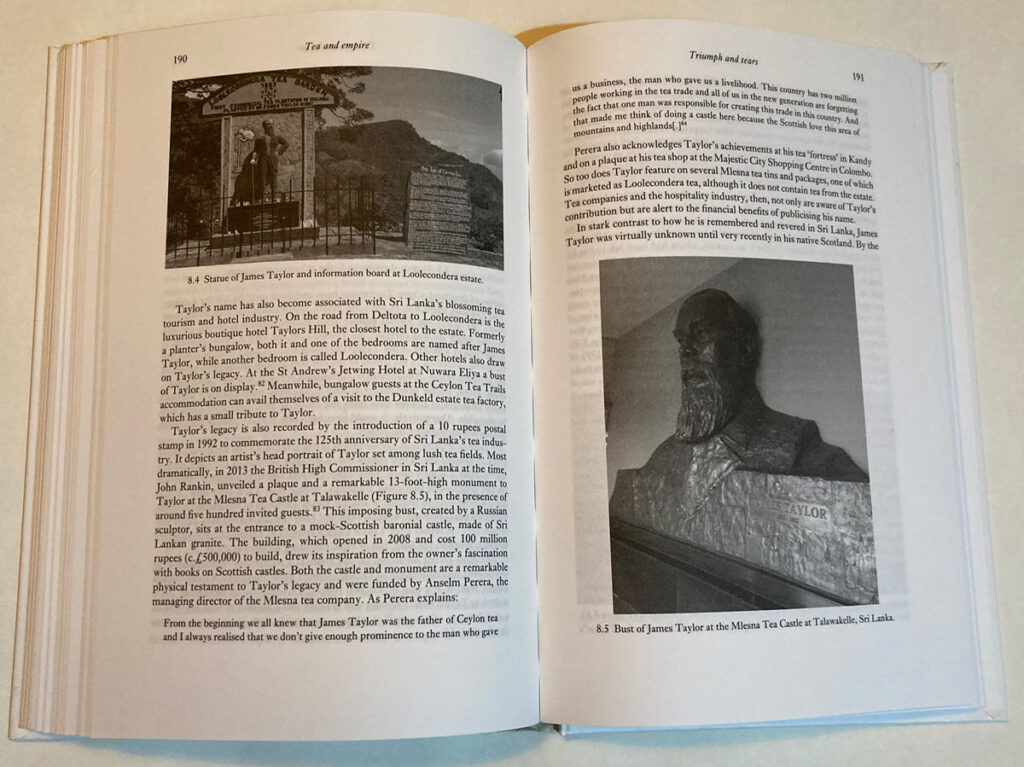
Here’s what some TeaBookClub members thought:
I’m really glad I read as much as I did, it seems like it’s very important history in the history of tea. – Audrey, USA
It being a first-hand account is what really made it interesting – Michaela, Austria.
I found it refreshing that the authors didn’t give Lipton much airspace. This was a book about James and what he did, achieved, and his life. I really appreciated that within the context of Ceylon at that time. – Taraya, Canada
It had very interesting and very boring parts but overall very good to read. Some parts were easier to read than others, maybe because there were two different writers. – Mariella, Netherlands
Fascinating that some of his machine designs are still being used today – Mariella, Netherlands
Based in the UK, The Tea Book Club is an international group of tea lovers and readers who meet up virtually every month to discuss tea books. If you’d like to join us for the next read, visit teabookclub.org or @joinTeaBookClub on Instagram.
Tea & Empire
Goodreads: This book brings to life for the first time the remarkable story of James Taylor, ‘father of the Ceylon tea enterprise’ in the nineteenth century. Publicly celebrated in Sri Lanka for his efforts in transforming the country’s economy and shaping the world’s drinking habits, Taylor died in disgrace and remains unknown to the present day in his native Scotland. Using a unique archive of Taylor’s letters written over a 40-year period, Angela McCarthy and Tom Devine provide an unusually detailed reconstruction of a British planter’s life in Asia at the high noon of empire.
Amazon | Hardcover, 272 pages | Kindle $29.90
Published September 1, 2017
Manchester University Press
Link to share this post with your colleagues
Signup and receive Tea Biz weekly in your inbox.
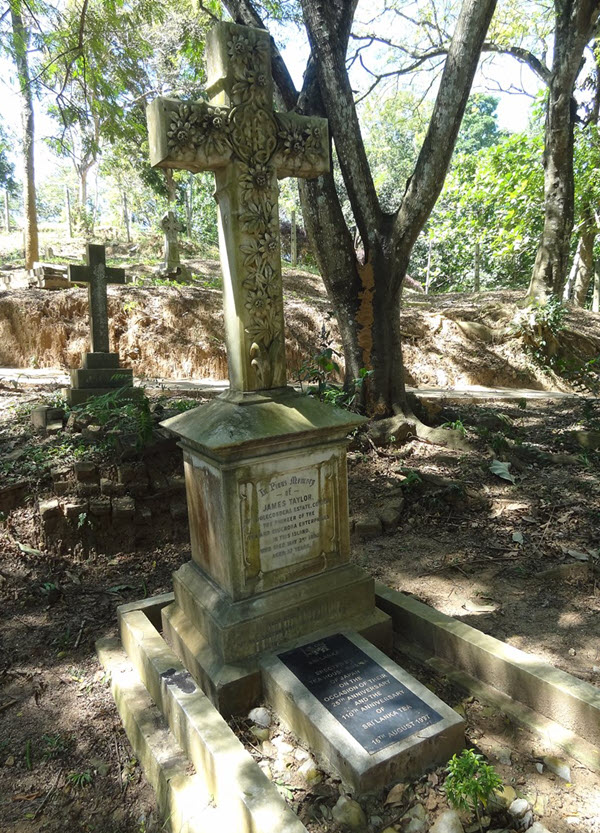
Never miss an episode
Subscribe wherever you enjoy podcasts:

